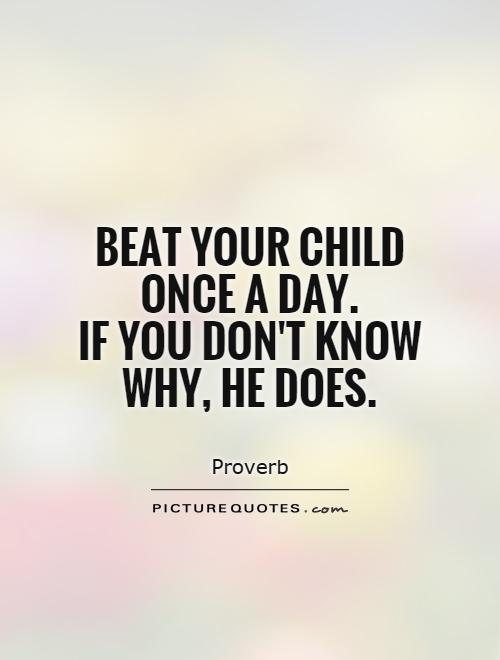Beat your child once a day. If you don't know why, he does

Beat your child once a day. If you don't know why, he does
The proverb "Beat your child once a day. If you don't know why, he does" is a controversial and thought-provoking statement that has sparked debate and discussion for many years. On the surface, it may seem like an endorsement of physical punishment as a means of discipline. However, a deeper analysis reveals a more nuanced interpretation.In many cultures and societies, the idea of disciplining children through physical means has been a common practice for centuries. Proponents of this approach argue that a firm hand is necessary to instill discipline and respect in children. They believe that a well-timed spanking or slap can serve as a deterrent for bad behavior and help children learn right from wrong.
On the other hand, opponents of physical punishment argue that it is ineffective and harmful to children. They believe that violence begets violence and that there are more effective and humane ways to discipline children, such as positive reinforcement and open communication.
When we examine the proverb "Beat your child once a day. If you don't know why, he does" in this context, it can be interpreted as a cautionary tale about the dangers of mindless and excessive discipline. The key phrase "If you don't know why, he does" suggests that discipline should be purposeful and intentional, rather than arbitrary and reactive.












 Friendship Quotes
Friendship Quotes Love Quotes
Love Quotes Life Quotes
Life Quotes Funny Quotes
Funny Quotes Motivational Quotes
Motivational Quotes Inspirational Quotes
Inspirational Quotes